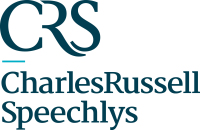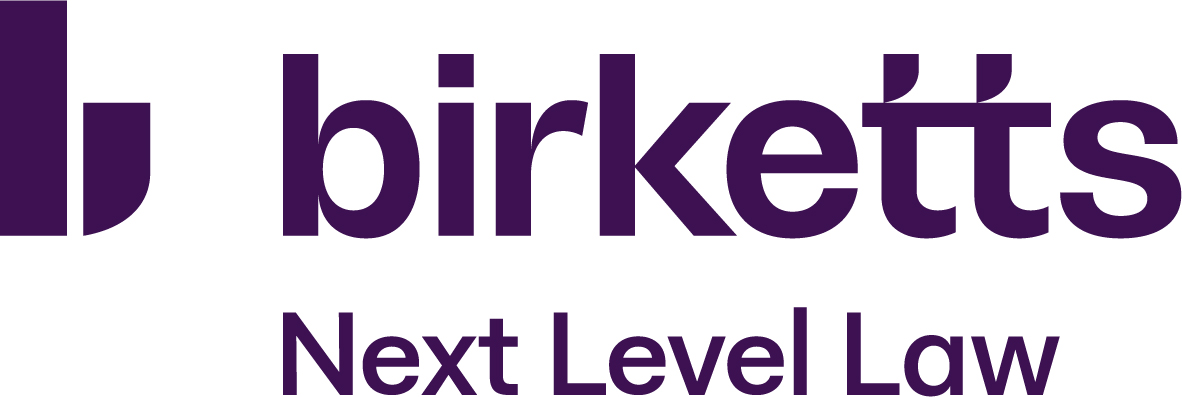Asset Protection Trusts

By John J. Ryan, Jr., President of CISA Trust
- Introduction
Asset protection trusts (APTs) are designed to shield trust assets from creditor claims, and are somewhat controversial because APTs can be used as instruments to defeat or impair legitimate pre-existing creditor claims. However, it is perfectly lawful for settlors to create an APT to protect the assets of the trust from unknown future creditors.
There are a number of common law trust jurisdictions which allow the settlor to retain reserved powers over the trust, protect trust assets from creditor's claims, and which do not recognize foreign judgements or claims based on foreign civil law forced heirship. Certain civil law jurisdictions also have laws that protect against creditor claims, including Liechtenstein (1 year limitations period) and Panama (3 year limitations period).
The United Kingdom still applies the Fraudulent Conveyances Act (1571), also known as the Statute of Elizabeth, which was enacted to protect creditors by voiding fraudulent transfers, and accordingly does not have specific asset protection legislation. Many well-known common trust jurisdictions, such as the BVI, Jersey, Guernsey and the Isle of Man, have not overridden the Statute of Elizabeth.
- Common Law APT Jurisdictions
The common law trust jurisdictions with asset protection laws reviewed in this article are the Bahamas, the Cayman Islands, the Cook Islands, and South Dakota in the United States.
- The Bahamas
The Bahamas trust law is known as the Bahamas Trustee Act, and provides for broad reserved powers in favor of the settlor. The Act states that the retention, possession or acquisition by the settlor of reserved powers shall not invalidate the trust or cause a trust created inter vivos to be treated as a testamentary trust. The asset protection laws are set-forth in the Fraudulent Dispositions Act, and provide that dispositions of property made with an intent to defraud the creditor and at an undervalue shall be voidable at the instance of the creditor. The creditor has the burden of proof to establish intent to defraud, and must bring the claim within 2 years from the date of the disposition. If the claim succeeds, the disposition shall be set-aside only to the extent necessary to satisfy the obligation owed to the creditor. "Obligation" is defined as an obligation or liability which must have existed on or prior to the date of the disposition and of which the transferor had notice. The Choice of Governing Law Act protects trust assets from foreign civil law forced heirship claims and foreign judgements.
- The Cayman Islands
The Cayman Islands Trusts Law (2020 Revision) provides for extensive settlor reserved powers, which are deemed not to invalidate the trust or cause the trust to be treated as a testamentary trust. The asset protection laws of Cayman are set-forth in the Fraudulent Dispositions Law, and provide that dispositions of property made with an intent to defraud the creditor and at an undervalue shall be voidable at the instance of the creditor. The creditor has the burden of proof to establish intent to defraud, must bring the claim within 6 years from the date of the disposition. If the claim succeeds, the disposition shall be set-aside only to the extent necessary to satisfy the obligation owed to the creditor. "Obligation" is defined as an obligation or liability which must have existed on or prior to the date of the disposition and of which the transferor had notice. Trust assets are protected from foreign civil law forced heirship claims, and foreign judgements.
Cook Islands
- The Cook Islands trust law, the International Trust Amendment Act, provides for very extensive reserved powers in favor of the settlor, which are deemed not to invalidate the trusts or cause dispositions to be void. Reserved powers include authorizing the settlor to act as trustee, beneficiary and protector.
The asset protection laws of the Cook Islands are also set forth in the Act, and provide that where a creditor can prove, beyond a reasonable doubt, that the trust was settled or disposition made with the principal intent to defraud the creditor, and the settlement or disposal rendered the settlor insolvent or unable to pay the creditor's claim, then the trust is liable to satisfy the creditor's claim, but neither the trust nor the disposition shall be void or voidable. Where the value of the settlor's property immediately after settlement or disposition exceeds the value of the creditor's claim, such settlement or disposition will be deemed not to have been made with intent to defraud the creditor. Trusts and dispositions shall be deemed not to have been made with fraudulent intent where made after 2 years from the date cause of action accrued, and where the trust is settled or the disposition occurs within 2 years of the accrual of the cause of action, the creditor must bring legal proceedings within 1 year of the settlement or disposition. Trusts settled and dispositions made prior to the accrual of the creditor's cause of action shall be deemed not to have been made with fraudulent intent. The Foreign judgements against Cook Islands trusts will not be recognized or enforced in the Cook Islands. Cook Islands trusts or dispositions of property made thereto will not be void, voidable or liable to be set-aside because they defeat forced heirship rights.
South Dakota
- The trust laws of South Dakota are codified in Chapter 55 of the South Dakota Codified Laws, and the APT statute is known as the statute on Qualified Dispositions in Trust.
In order to fall within the South Dakota asset protection statute, the trust must have a qualifying South Dakota trustee, the trust instrument must have an express South Dakota governing law clause regarding the validity, construction and administration of the trust, the trust must be irrevocable, and is not deemed to be considered revocable because of the settlor's reserved powers, and, the trust instrument must contain a spendthrift clause.
The South Dakota APT statute provides that no action of any kind, including an action to enforce a judgement, may be brought, against property subject of a qualified disposition or for avoidance of a qualified disposition, unless the transfer was made with the intent to defraud that specific creditor. The burden to prove the matter by "clear and convincing" evidence is on the creditor. For pre-existing creditors that existed prior to the transfer of assets to the trust, the claim must be brought within the later of 2 years after the transfer or 6 months after the transfer is or reasonably could have been discovered. A person is deemed to have discovered a transfer at the time a public record of the transfer is made, such as the filing of a bill of sale. For creditors whose claims arise after the transfer into trust, the claim must be brought within 2 years after the transfer. A qualified disposition may be avoided only to the extent necessary to satisfy the transferor's debt to the creditor at whose instance the disposition has been avoided. However, certain classes of creditors, known as "exception creditors" (child support, alimony, marital property) may reach assets held in APTs.
In respect of domestic out of State judgements by Federal or State courts, such judgements are entitled to recognition the Full Faith and Credit Clause of the US Constitution. However, the Full Faith and Credit Clause notwithstanding, the South Dakota Supreme Court recently ruled in Cleopatra Cameron, that enforcement of a foreign judgment against a South Dakota trust in violation of the trust's Spendthrift clause will be denied where it violates South Dakota law and policy.
In respect of foreign country judgements, trusts governed under South Dakota law will not be void or set aside because the law of the foreign country prohibits or does not recognize trusts, or the trust defeats forced heirship rights, or contravenes any foreign law or judgement. The South Dakota APT statute has a specific provision that foreign forced heirship claims and claims for legitime under foreign law are excluded and may not be asserted against a South Dakota APT.
Analysis
- The Bahamas, Cayman, the Cook Islands and South Dakota all trust have reserved powers legislation, asset protection rules, and do not recognize foreign judgements, as well as claims based on foreign civil law forced heirship rights.
Reserved powers typically allow the settlor to hold powers to revoke, control, and benefit from the trust without affecting the validity of the trust, but depending on the applicable legislation, such reserved powers may expose the trust assets to attacks by creditors. The reserved powers legislation of the Bahamas and Cayman, which are practically identical, merely state that the retention of such powers by the settlor shall not invalidate the trust or cause the trust to be treated as a testamentary trust. The fraudulent conveyance laws of these two jurisdictions are also very similar, except that the creditor limitations period in Bahamas is 2 years whereas it is 6 years in Cayman.
On the other hand, the Cook Islands law goes much further, indeed perhaps too far, and provides that the reserved powers of the settlor, which allow the settlor to be a beneficiary as well as a trustee, shall not cause the trust be declared invalid, or dispositions declared void. This provision may lead a court to conclude that where the settlor is also the trustee and a beneficiary, the trust will be declared a sham. The creditor limitations period is 1 year. If the creditor's claim prevails, the trust or disposition is not void or voidable but the trust is be liable to satisfy the creditor's claim. By comparison, the South Dakota APT legislation is more conservative and is not as aggressive as the Cook Islands legislation, and requires the trust to be irrevocable and the trustee to be a qualifying third-party. The reserved powers enumerated in the South Dakota statute are not deemed to cause the trust to be treated as revocable, and hence available to claims of creditors. The creditor limitations period is 2 years. However, although the settlor can be a beneficiary with certain rights to income, distributions of principal must be at the discretion of the trustee or pursuant to an ascertainable standard, e.g. Health, Education, Maintenance and Support (HEMS). If a creditor's claim succeeds, dispositions are avoided only to the extent of the creditor's claim.
Structuring for Asset Protection
- As a practical matter, notwithstanding reserved powers under the governing law of the APT, in order to mitigate attacks by creditors, such trusts should be irrevocable and discretionary, should be settled before any creditor claim arises, the settlor should hold few if any reserved powers, and if the settlor is a beneficiary, distributions of income and capital should be made at the discretion of the trustee.
Ideally, to minimize the risk of foreign courts not applying the governing law of the APT, the trustee, the governing law of the trust, and the assets of the trust should be located in the same APT jurisdiction. This is not always possible as settlors often prefer to keep trust assets in certain financial centers, and not necessarily in the jurisdiction of the APT. Finally, settlors remain exposed to creditor attacks in the jurisdiction where they reside, which is normally where creditor litigation arises.
Sponsorship
Find out why leading brands in the private client industry are partnering with PCD to raise their profile, make connections and drive new business.
Membership
Find out how you can participate in the leading club for international private client advisors and unlock opportunities around the globe.



















